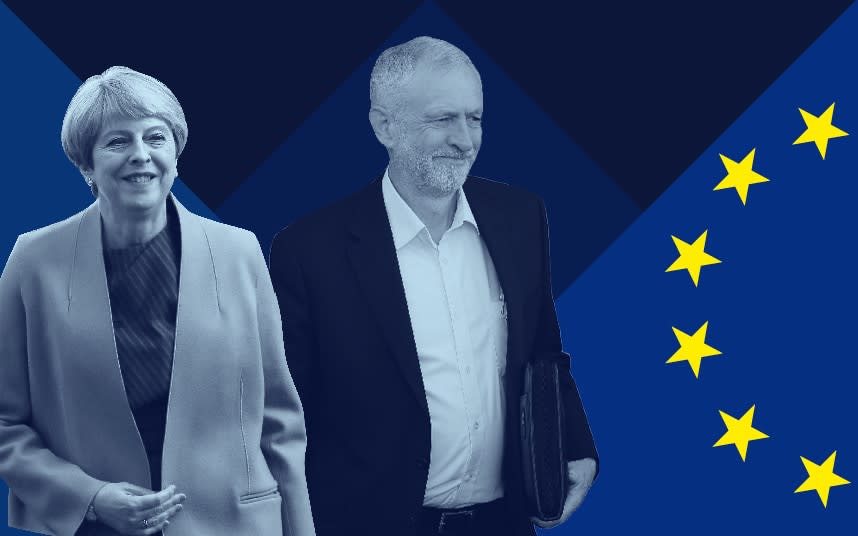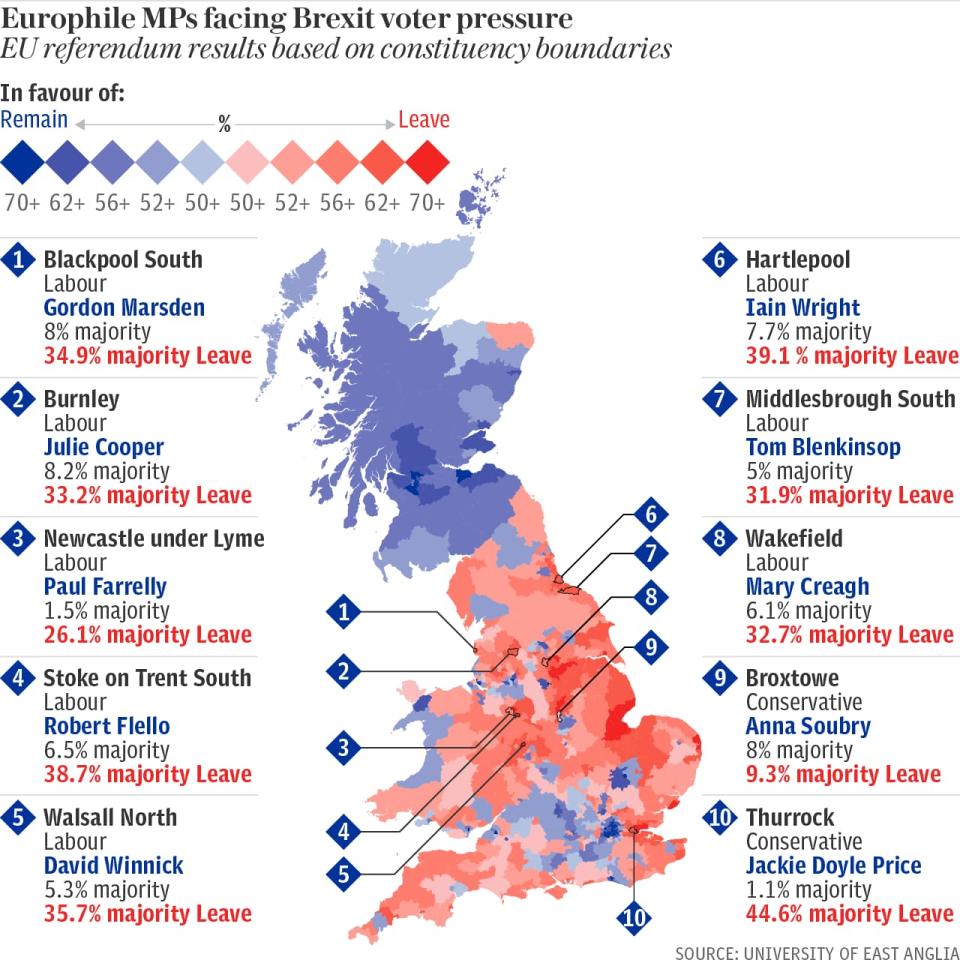How will Brexit affect the 2017 General Election?

It has only been two years since David Cameron won an unexpected majority at the 2015 general election, but the UK's political landscape has changed dramatically in that time.
Last year's EU referendum split the country down the middle and the Remain vs Leave rivalry has not gone away in the intervening 10 months.
Brexit is dominating the national conversation with the issue taking up a huge amount of the government's energy, even before the negotiating process has officially commenced.
Chart - what issues are the most important ones facing the UK
Arecent poll by YouGov showed that 63 per cent of Britons think that Brexit is one of the three most important issues the UK faces in the coming months. This makes it by far the most popular choice, with health coming second on 42 per cent.
The Conservatives have the Brexit factor
The issues surrounding Brexit seem sure to influence the way that people will vote on June 8 and constituencies could well change hands depending on how much each party is trusted to negotiate the UK's exit from the EU.
This plays into the hands of Theresa May with the same YouGov poll suggesting that nearly four times as many people think the Conservatives are the best party to handle Brexit compared to Labour.
Chart - which party do people think will handle Brexit best
Thirty-four per cent of respondents picked the Conservatives as the best party in this regard compared to the nine per cent who picked Labour and the seven per cent who picked the Lib Dems. Both of these parties are out-polled by UKIP who are sitting on 10 per cent.
The Conservatives' dominance when it comes to being trusted to deliver Brexit must have been a factor in the reasons why Theresa May chose to call an early general election at this time.
Her hard Brexit stance could alienate some Conservative voters in places like Devon and Cornwall, but the perceived lack of a strong alternative option may mean that this will not matter.
Labour have big problems when it comes to Brexit
The Conservative party's position of strength over Brexit looks rosier due to Labour's relative weakness on the issue.
Labour's message on Brexit under Jeremy Corbyn has been mixed, with the Labour leader reluctantly campaigning to Remain before demanding that Article 50 should be invoked the morning after the referendum.
Chart - Brexit polling, Labour
Corbyn also refused to let Labour MPs vote against the government's bill to trigger article 50, something that led several front-benchers to rebel against the Whip.
In this instance you can forgive Corbyn his mixed messages. While a majority of Labour voters voted to Remain in the EU in last June's referendum, a majority of Labour-voting constituencies voted to Leave the EU.
On top of this, a demographic analysis of the EU referendum results by politcal scientist Chris Hanretty suggests that -were the voting to have taken place in parliamentary constituencies as opposed to local authorities - there would be 150 more Leave constituencies than Remain ones.
Labour seats vs voters on EU ref choices
This will have been a driving factor behind why the Labour leadership took a hard line on refusing to oppose the Conservative's desire to trigger Article 50.
It would be very difficult to win a general election on a ticket that vowed to - or was seen to - oppose or somehow frustrate Brexit.
Labour voters are split on what kind of Brexit they want, and this makes it nigh on impossible for Corbyn's team to come up with an approach that will please everybody.
Labour voters and Brexit outcomes
Will the Lib Dems rise again as the voice of the Remainers?
The Liberal Democrats will be viewing this snap election as an opportunity to regain some of the ground that they lost in the 2015 general election.
In the wake of the referendum, Tim Farron's party have sought to establish themselves as the voice of the 48 per cent who voted to Remain.
This is a vacuum that no other major party has tried to fill and their desire to see a second referendum on the terms of Brexit is likely to attract votes.
After successfully winning the Richmond Park by-election by defeating Zac Goldsmith at the end of last year they are currently polling at 12 per cent.
This would constitute a big improvement on the 7.9 per cent vote share they received in 2015. Unlike Labour they have the luxury of not having to win the general election in order for their campaign to be deemed a success.
Which MPs could be under threat because of their voting history?
When it comes to individual MPs whose jobs are threatened by their Brexit stance contradicting that of their constituents, several MPs will be nervously eyeing the polls.
There are two Labour MPs - Paul Farrelly and Angela Smith - that voted against triggering Article 50 whose constituents voted for Brexit with a greater margin than their own 2015 majority.
Brexit constituencies held by MPs that voted against Article 50
MPs such as Thangam Debbonaire (Lab) Jo Stevens (Lab) Tania Mathias (Con) Nicola Blackwood (Con) Mary Robinson (Con) represent Remain constituencies and yet voted for Article 50.
The Lib Dems came in second place in each of these constituencies in 2015, and with Remain majorities larger than their MPs' majorities in 2015, they could be under threat from a Lib Dem resurgence based on their support from Remainers.
Remain constituencies held by MPs that voted pro Article 50


 Yahoo News
Yahoo News 
